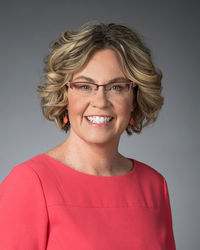From the director

A week after the Memorial Day murder of George Floyd, Dean Marcus Cole of Notre Dame Law School wrote a poignant reflection on his own encounters, as an African American man, with racial violence at the hands of police. “I am George Floyd,” he wrote. “Except, I can breathe. And I can do something. I must do something . . . There are things that I, in my position, can do.” Dean Cole went on to announce initiatives he is spearheading at the Law School to advance the cause of racial justice. Inspired by my colleague’s call to action, I thought very seriously about what I, in my position, can do—and I have taken a few steps in that direction. None of them go far enough, I realize, but I offer them as a beginning.
First, Dean Cole’s essay prompted me to frame our new project on clergy sexual abuse in the Catholic Church even more broadly. In early June my co-director Robert Orsi and I had contemplated postponing the upcoming first meeting of the working group. We were slated to discuss hundreds of pages about clergy sexual abuse and listen to testimony from a survivor, and we wondered whether that was too much to ask of our researchers when we were all grappling with so much heartbreak. We discerned that moving forward was more important than ever: “Our project is concerned,” we explained to the group, “with the violent abuse of power by official authority, with its causes and consequences within neighborhoods, schools, and parishes, and above all, in the lives of victims. We are dedicated to disclosing and understanding the cruelty directed by the powerful and their enablers towards the innocent and vulnerable. In this sense, our work holds the promise of contributing to the public conversation that must follow May 25, 2020, about accountability, justice, and change.” A friend of mine, a survivor of clergy sex abuse, gently reminded me that forging ahead also represented an act of solidarity with survivors: they do not, after all, have the privilege of deciding how much exposure and emotional pressure they can bear.
The team also resolved to recruit a scholar who could work explicitly on abuse in Black Catholic communities and reached out to colleagues across the country in search of recommendations. I am delighted to report that Dr. Tia Noelle Pratt, a sociologist who has written about this issue in a widely cited blog post, has agreed to join our working group.
You can read more about a second initiative undertaken by the Cushwa Center, in partnership with the ACHA: the establishment of the Cyprian Davis, O.S.B., Prize, an award designed to stimulate much-needed research on the Black Catholic experience.
Finally, Dean Cole’s reflection also influenced a choice I made as a professor: I selected Sister Thea Bowman’s cause for canonization as a case study in my first-year “Sanctity & Society” seminar, assigning Rev. Maurice Nutt’s new biography, Thea Bowman: Faithful and Free. Sister Thea’s life both teaches us about the sin of racism in the Church and awakens us to the possibility of atonement and redemption. Rev. Nutt, who recently characterized Sister Thea as “a national witness to the possibility of racial healing and reconciliation,” joined my seminar for an informative and inspirational virtual visit. I am looking forward to meeting him in person in October 2021, when the Cushwa Center will cosponsor a meeting of the Black Catholic Theological Symposium at Notre Dame.
Speaking of the communion of saints, Bill Cushwa entered into eternal life on September 8. Bill was a generous benefactor but above all a good friend. I admired his curiosity, appreciated his sense of humor, and remain awed by his faith. Early on in our friendship, almost two decades ago, I attended the funeral of Bill’s brother, Charles. I remember watching Bill, through his tears, leading the mourners in a spirited rendition of the Notre Dame fight song. When I shared this memory with Bill Cushwa Jr. soon after hearing news of his father’s death, he reminded me that the official name of the fight song is the “Victory March,” and in that sense it is an appropriate anthem not only for Notre Dame fans but for all Christians. In the age of coronavirus, the chorus was more subdued at Bill’s funeral, but no less heartfelt: Onward to victory, Bill, together with all the saints.
Kathleen Sprows Cummings
Kathleen Sprows Cummings serves as the William W. and Anna Jean Cushwa Director of the Cushwa Center for the Study of American Catholicism at the University of Notre Dame, where she is the Rev. John A. O'Brien Collegiate Professor of American studies and history.
This director's note appears in the fall 2020 issue of the American Catholic Studies Newsletter.